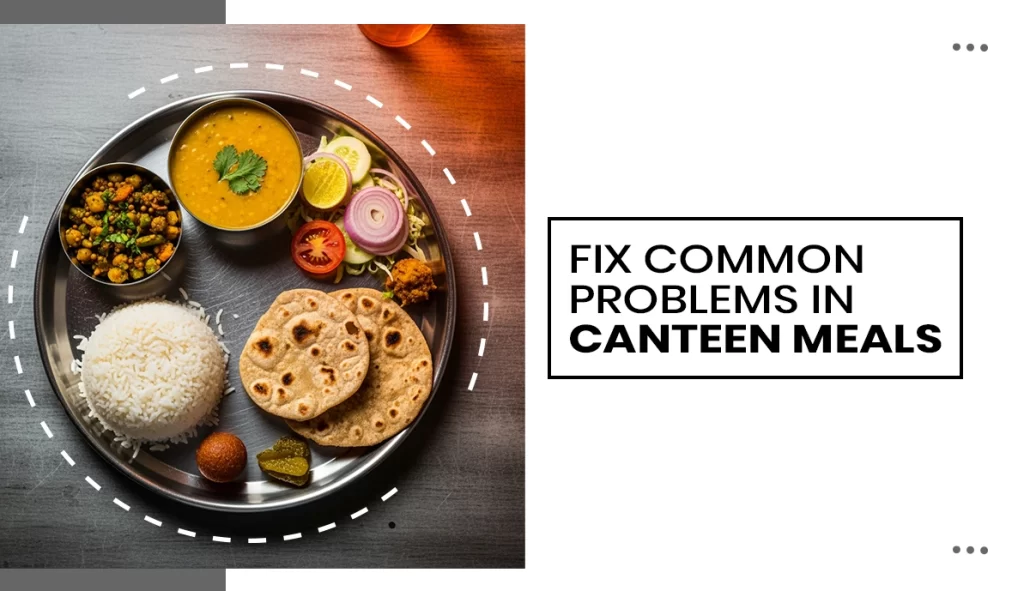
In the upcoming years, sustainability has become a significant factor in how organisations operate, and the food industry is no exception. However, from farm-to-table restaurants to eco-friendly packaging innovations, the movement toward a greener food system continues to grow.
One singular area that holds great potential for sustainable transformation is that of catering for canteens, especially in the context of curry delivery, an inspiring model for the future of institutional catering.
The Importance of Sustainability in Canteen Catering
According to Albus Hospitality experts, canteens serve hundreds or even thousands of meals daily, resulting in a substantial environmental footprint for their operations. The traditional catering model primarily relies on mass production, disposable packaging, and a long supply chain; all of these contribute to food waste, carbon emissions, and resource depletion.
However, transitioning to sustainable practices not only reduces environmental impacts but also promotes healthier eating habits and strengthens the local food systems. Therefore, by integrating sustainability principles into menu planning, ingredient sourcing, and delivery methods, canteen caterers do make a huge difference.
Among the several dishes served in institutional catering, curries stand out as both culturally diverse and highly adaptable to sustainable preparation and distribution methods.
Why Curries Are Ideal for Sustainable Catering
Curries are well-suited for large-scale sustainable catering. They are versatile, cost-effective, and primarily prepared using a wide range of seasonal and plant-based ingredients. Unlike several fast food options, curries do retain their flavour and texture even after transportation, making them ideal for delivery-based catering systems.
Sustainable curry catering focuses on a few core principles:
Local and Seasonal Ingredients
However, sourcing vegetables, legumes, and spices locally not only reduces transportation emissions but also supports local farmers. Furthermore, seasonal ingredients such as pumpkins, spinach, and lentils are seamlessly incorporated into traditional curry recipes, providing nutrition and freshness.
Plant-Based Options
However, plant-forward curries like chickpea masala, vegetable korma, and tofu tikka can reduce the carbon footprint as compared to meat-based dishes. Therefore, a balanced menu that offers hearty vegetarian options appeals to both health-conscious and eco-aware consumers.
Low-Waste Cooking Practices
It is the canteen kitchens that mostly adopt zero-waste methods, such as using vegetable scraps for stock, composting organic waste, and repurposing surplus food for the next day’s dishes.
Curries mostly rely on slow cooking and spice blending, are inherently forgiving and flexible, and it is perfect for minimising waste.
Sustainable Delivery Systems
Delivery plays a critical role in the sustainability of canteen catering. However, the shift from single-use packaging to reusable or compostable containers can significantly reduce plastic waste.
Stainless steel tiffins, biodegradable bowls, and recyclable boxes are natural alternatives that maintain the food quality while aligning with the environmental goals. Moreover, an eco-friendly delivery system can include electric vehicles or bicycle couriers, reducing emissions associated with food transport.
Whereas, for large institutions, centralised kitchen models where curries are prepared in one energy-efficient location and distributed locally can further optimise energy use and reduce costs.
Social and Economic Benefits
At times, sustainable curry delivery can create positive ripple effects that extend beyond the environmental outcomes. However, by working with local farms and spice cooperatives, caterers can mainly stimulate local economies and promote fair trade practices.
Furthermore, educational institutions often utilise catering services for canteen sustainability programs as learning tools, inspiring students to make conscious food choices.
For employees, sustainable curry delivery through the catering system improves morale and well-being. While fresh, flavorful curries are mostly made with the presence of ethically sourced ingredients, they can certainly transform lunch breaks into a meaningful experience that reflects organisational values and a commitment to the planet.
Final Thought
While catering for canteens is more than a logistical task, it is an opportunity to build a sustainable food culture. However, by embracing eco-friendly curry delivery systems, institutions can mainly reduce waste, support local communities, and set a new standard for responsible dining.
Whether it is a school canteen serving lentil dal or a corporate cafeteria offering spicy vegetable curry bowls, the message is clear, as sustainability and satisfaction should go hand in hand. In the evolving landscape of food service, sustainable curry delivery represents a delicious, practical, and ethical path forward for canteen catering, one that nourishes both people and the planet.
FAQ
1. What does sustainable curry delivery mean in canteen catering?
At times, sustainable curry delivery refers to the preparation, distribution, and packaging of curry-based meals in an environmentally responsible way. It includes using locally sourced ingredients, minimising food waste, and reducing energy consumption during cooking, as well as opting for eco-friendly or reusable packaging for delivery to canteens. The goal is to provide nutritious, flavorful meals while reducing the overall environmental footprint.
2. Why are curries suitable for sustainable catering in canteens?
Curries are ideal for sustainable catering because they are versatile, easy to scale for large groups, and can be made with a wide variety of plant-based ingredients. It maintains their taste and texture even after reheating or delivery, making them perfect for canteen operations. Furthermore, curries can incorporate seasonal vegetables, pulses, and grains, which reduces costs and supports local farmers.
3. How can canteens make curry delivery more environmentally friendly?
Canteens mostly adopt several green practices, like
- Usage of compostable or reusable packaging instead of single-use plastics.
- Partnering with suppliers who offer locally sourced and organic ingredients.
- Employing electric vehicles (EVs) or bicycle delivery systems.
- Implementation of zero-waste cooking by composting food scraps and repurposing leftovers.
- Optimising delivery routes to minimise fuel use and carbon emissions.
